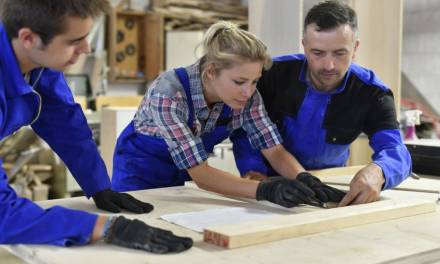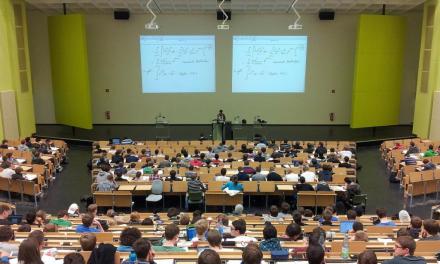Design and technology skills are applicable to a wide range of careers, from carpenter to aerospace engineer.
For students with creative energy, then, the various areas of design and technology offer an exciting path beyond school.
Whether they’re fascinated by electronics, eager to work with wood and metals, or are eager to pursue a career in art, the skills learned through design and technology classes can assist them with their aspirations.
Take a look at these potential career paths utilising the skills and qualities that design and technology can help to develop.
Carpenter
Carpenters construct and maintain the wooden fixtures and fittings of buildings.
This includes making doors and staircases, installing floorboards and roof timbers, plus interior assembly for businesses and theatre productions.
Learning these technical skills is only part of the preparation. Students will also need to develop their creative problem-solving skills to respond when problems crop up.
To set out on the carpentry career path, students will either complete an apprenticeship or take an NVQ or BTEC.
Animator
On the other side of the design spectrum is an animator, working on television, film or game animations.
If a student has a flair for art and an interest in animation, the skills that design and technology develops will complement this.
It will improve organisation and the ability to see the bigger picture, along with nurturing communication skills that are vital when working as part of a team – something that traditional art subjects may not comprehensively develop on their own.
Animators either train on the job following college or take a degree in animation or general art.
IT Technician
Design and technology also encompasses computer systems.
Taken in tandem with IT qualifications, design technology skills can help develop a pupil’s skills in problem-solving, organisation and communication.
While IT subjects focus extensively on the technical elements of computer technology, other skills may need to be developed elsewhere.
Computer technicians will either need to undertake an apprenticeship or computer and electronics qualifications at college.
Aerospace Engineer
Building aircraft and spacecraft may seem very distant from the classroom, but the technical skills learned in design and technology can help a student prepare for engineering roles.
Analytical skills nurtured during design technology modules, along with the ability to solve problems and understand technical plans and language, ensure that a budding engineer has a grounding in the basics which will underpin their career.
Pattern Cutter
There are numerous opportunities within the fashion industry for design and technology students, including costume design and set design.
A pattern cutter works to create patterns based on drawings provided by a fashion designer. This may include drawing by hand or via a computer program.
Design and technology not only develops the technical skills required, such as precision and attention to detail, but also the creativity required to turn drawings into reality and the ability to meet deadlines and demands.









